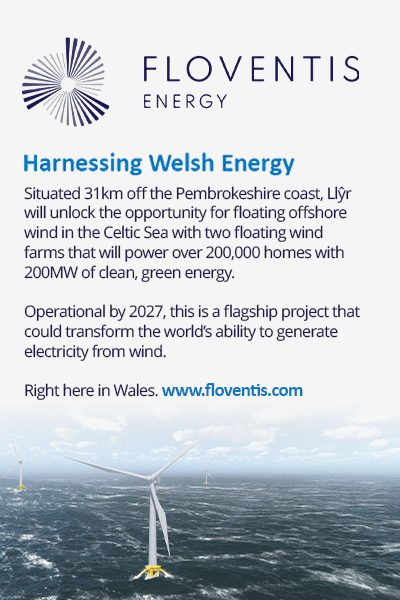
Apollo, a leading UK-based engineering and advisory provider, has announced the successful completion of a pre-FEED engineering study in collaboration with Celtic Sea Power which explored the development of coordinated solutions to bring marine generated power into Pembroke from the Celtic Sea. The collaborative effort with Vekta resulted in the creation of two commercial-scale substations, to be situated in two of the three Primary Development Areas (PDAs) identified by The Crown Estate, along with a smaller Multi-connection Offshore Substation (MOS) within the Pembrokeshire Demonstration Zone (PDZ).
The outputs resulting from the pre-FEED engineering study will improve engineering design and the understanding of how to achieve coordination in line with the evolving regulatory environment. Utilising these designs could accelerate project delivery and maximise the potential of the first commercial scale floating offshore wind (FLOW) projects through a coordinated approach. Partly funded through the European Regional Development Fund the project also aims to stimulate further investment in the region for the FLOW market.
The award of the pre-FEED contract built on a successful collaboration between Apollo and Celtic Sea Power in the Concept phase to help define the offshore design envelope and onshore connections of the asset. Through further work, it is hoped that the project could also provide an offshore coordinated electrical link for FLOW development in the Celtic Sea, reducing the development cost to developers active in this area.

The Crown Estate leasing round to release 4.5GW of FLOW in the Celtic Sea, commences at the end of this year with an ambition to realise a further 20GW in the future.
Speaking about the collaboration, Jonathan White, Regional Director of Apollo said:
“We enjoyed working with Celtic Sea Power and our partners at Vekta to realise this exciting project in order to realise a tangible offshore asset that has considerable advantages for the region.
“By coordinating offshore electrical connections there is the opportunity to save considerable amounts of investment capital with associated significant socio-environmental impacts onshore by have a single defined onshore connection.”
Nigel Jones, Technical Manager at Celtic Sea Power, commented:
“The project outputs provides robust technical solutions for coordinating offshore renewable energy projects, both at a test and demonstration level as well as the larger commercial scale FLOW projects in the Celtic Sea. Coordination can have financial benefits as well as the reduced environmental and social impacts that go alongside minimising landfall points & cable corridors.
“With Apollo and Vekta’s expertise and professionalism, the pre-FEED outputs could be delivered within our condensed timeframe.”
For more information about Apollo and their involvement in the Celtic Sea Power project, please visit www.apollo.engineer





